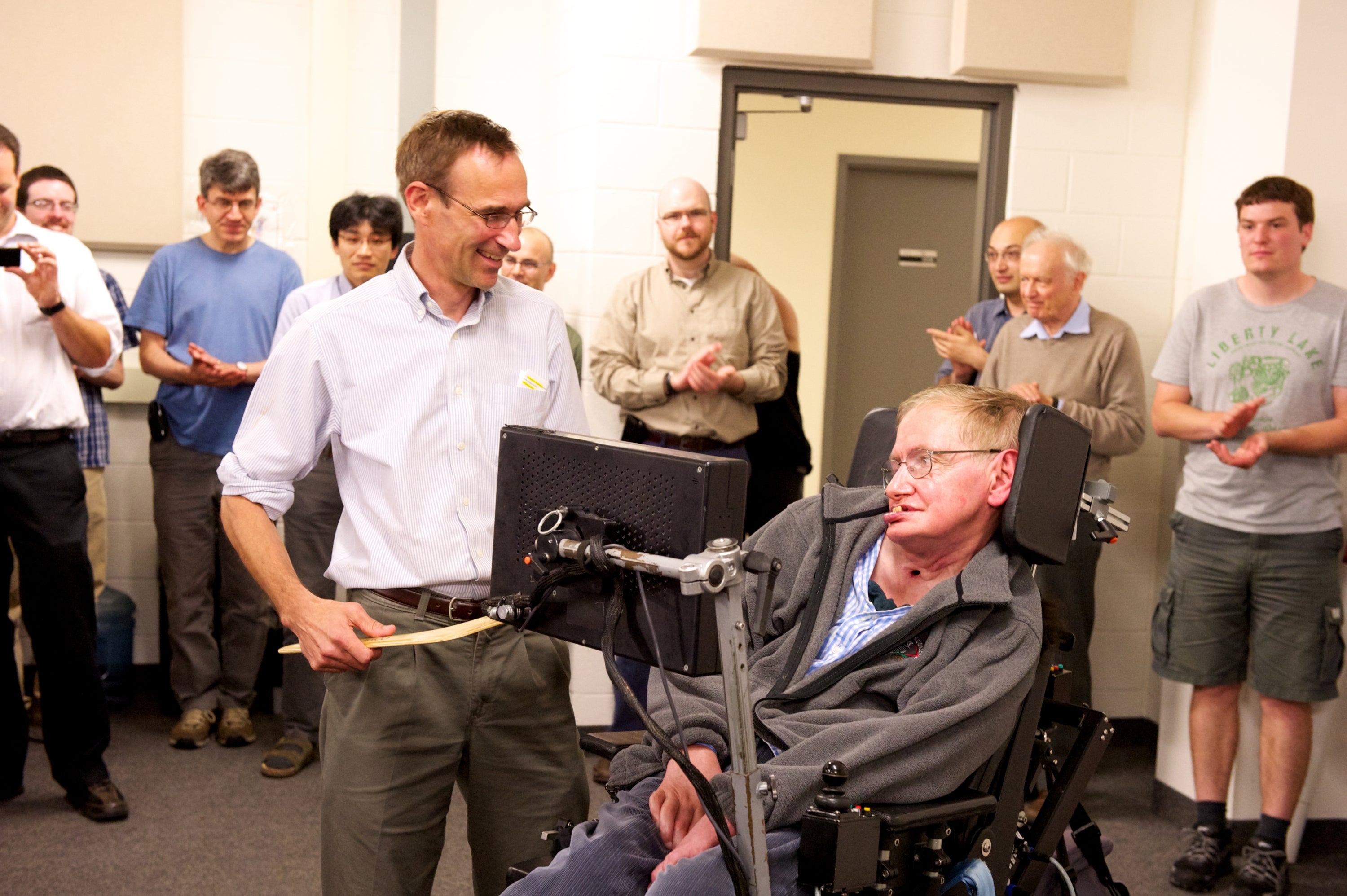At first glance, a wooden boomerang might seem like a peculiar gift to give the world’s most famous scientist. But Stephen Hawking immediately understood the significance of the gift he received this week from his former doctoral student, IQC Director Raymond Laflamme.

In the 1980s, when Hawking was writing his best-seller “A Brief History of Time,” Laflamme’s job was to mathematically demonstrate his mentor’s theory about what happens to time in a contracting universe.
Trouble was, the math just didn’t add up. Laflamme instead proved that Hawking’s theory — that time reverses direction — could not be true.
Hawking conceded his student's calculations were sound, and personalized Laflamme’s copy of “A Brief History of Time” with the inscription: “To Raymond, who showed me that the arrow of time is not a boomerang. Thank you for all your help. Stephen.”
Laflamme gave his former mentor the grand tour of IQC’s labs, introducing him to the faculty, students, and staff of the institute. “These are the people that allow great science to happen,” Laflamme said.
During a small reception, Laflamme presented Hawking with the boomerang, which is engraved with an optimistic message for the future: “Come back soon!”
Founded in 2002, the mission of the Institute for Quantum Computing (IQC) is to aggressively explore and advance the application of quantum mechanical systems to a vast array of relevant information processing techniques.
A part of the University of Waterloo, Waterloo, Ont., Canada, IQC creates a truly unique environment fostering cutting-edge research and collaboration between researchers in the areas of computer, engineering, mathematical and physical sciences.
At the time of this release, IQC has 17 faculty members, 22 postdoctoral fellows and over 55 students and research assistants, as well as a support staff of 18.
The Institute for Quantum Computing acknowledges the support of the Government of Canada through Industry Canada and the Government of Ontario through the Ministry of Research and Innovation.